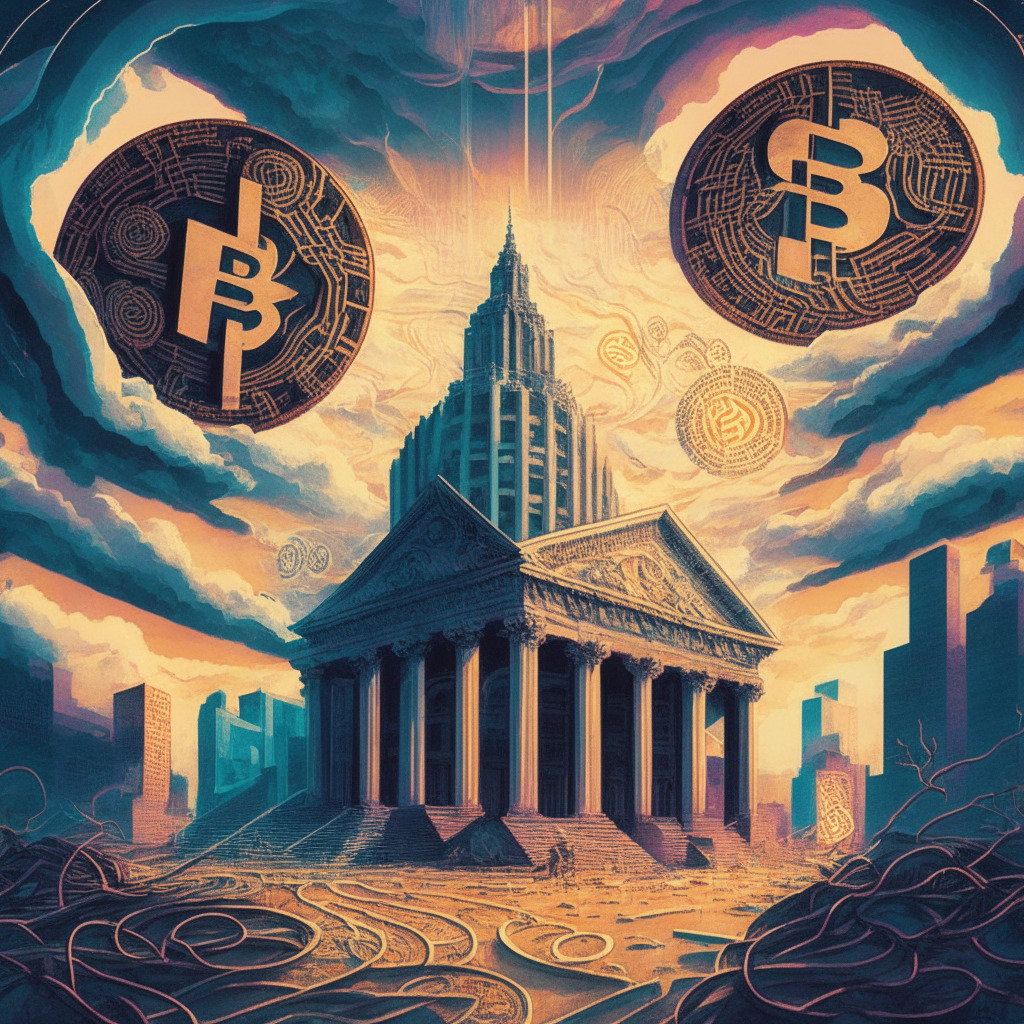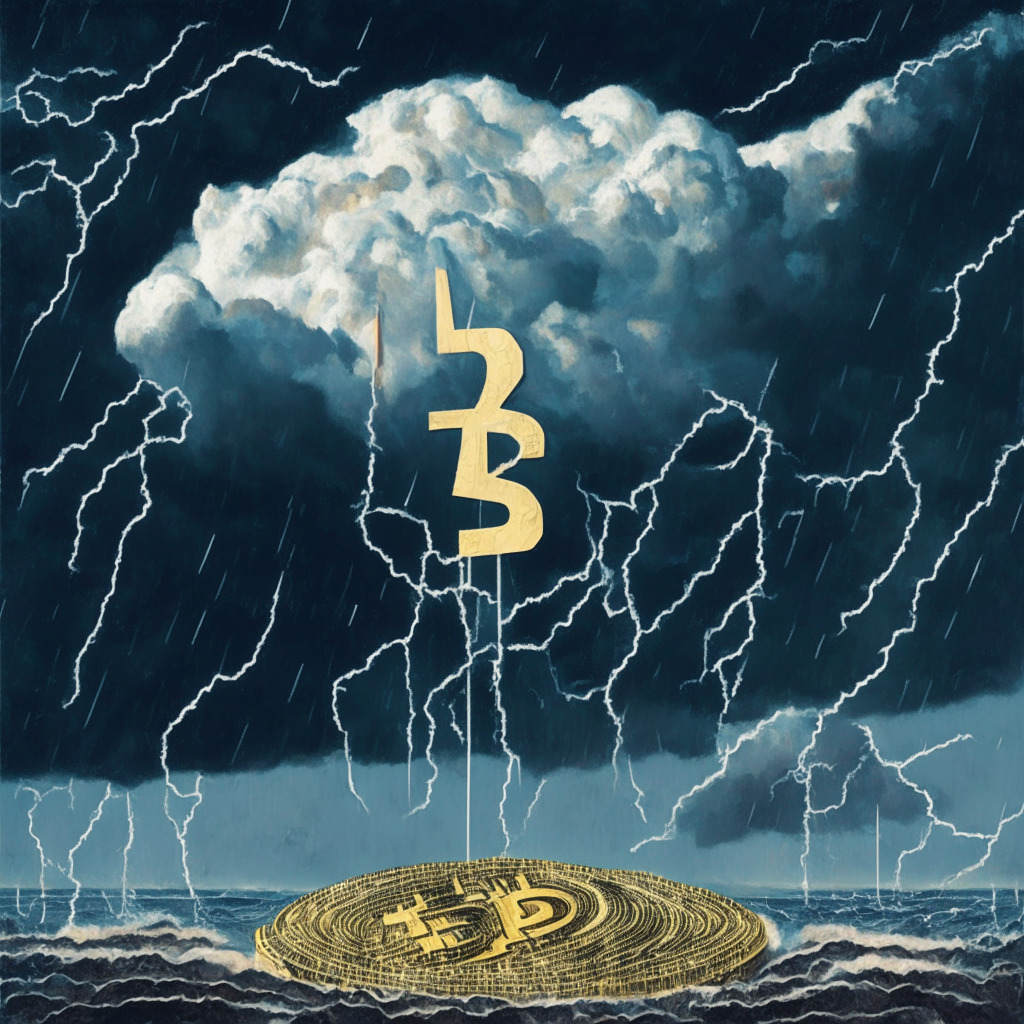Ripple’s report predicts significant growth for Central Bank Digital Currencies (CBDCs), potentially expanding from a $100 million market today to $213 billion by 2030. As Ripple advocates for CBDCs and expands globally, it faces an ongoing legal battle with the U.S. SEC, highlighting the uncertain regulatory landscape of the digital currency industry.
Search Results for: Central Bank of Brazil
Exploring Crypto Expansion in Latin America and the Caribbean: Boons and Challenges
The joint study by IDB and CCAF shows remarkable growth in cryptocurrency in Latin America and the Caribbean since 2016. The report highlights the need for understanding this emerging market and ensuring its secure and sustainable growth through collaborative efforts.
Russian Legislator Predicts Global Foray of Digital Ruble by 2025, Possible Shift in International Trade
A high-ranking Russian legislitor, Anatoly Aksakov, predicts that domestic corporations will utilize the nation’s digital ruble, a Central Bank Digital Currency (CBDC), by 2025, especially in Latin American nations. He also suggested potential usage could transform “mutual settlements” among these nations.
Kraken’s Expansion in Europe: Spearheading the Crypto Revolution with Key Regulatory Approvals
Crypto exchange Kraken has secured regulatory approvals in Spain and Ireland, furthering its expansion plans in Europe. With a Virtual Asset Service Provider license and an EU e-money license, Kraken will provide digital asset exchange and custodial wallet services.Investment into regulatory framework positions Europe as a promising arena for crypto growth.
Global Crypto Regulatory Trends: A Challenge or an Opportunity?
Recent global legislative actions are intensifying cryptocurrency regulation discussions. Hong Kong is focusing on regulated exchanges to decrease fraud-related investor losses, Thailand is taxing overseas crypto profits, Brazil is advocating for digital assets protection, and the U.K. and U.S. are developing bills targeting illegal crypto use and curtailing Central Bank Digital Currencies respectively. Regulatory changes highlight the balance between encouraging financial innovation and protecting citizens.
Coinbase Obtain AML Compliance in Spain: Striking Balance between Global Expansion and Regulatory Challenges
Coinbase has secured an Anti-Money Laundering compliance registration from Spain’s central bank, enabling crypto services in the country. As Coinbase expands globally, it faces possible complications from varying regulatory frameworks and is urged to prioritize asset security as skeptical holders consider withdrawing assets.
Deciphering China’s Crypto Future: A Step Beyond USD Dependence?
Chinese scholar, Huang Qicai, suggests digital currencies could stimulate a global transition from USD dependence, potentially leading to a “world currency multi-polarization”. Key nations like China, Russia and Brazil are making significant strides in digital currencies, hinting at a potential change in global monetary governance.
Regulating Crypto and AI: Balancing Technological Innovation with Global Cooperation
“The G20 nations emphasize the need for responsible growth and use of AI, recognizing the potential of crypto assets and digital currencies in fostering a digital world. They propose a global crypto framework to navigate challenges like data protection, potential biases, and human oversight, advocating for a more homogeneous approach in the disjointed global landscape.”
Navigating the US Crypto Regulatory Hurdles: Will Clarity Emerge or Companies Relocate?
The United States’ unclear crypto regulations are driving companies to seek more crypto-friendly countries. Tennessee Senator, Bill Hagerty, supports comprehensive cryptocurrency legislation in the US, replacing the current ‘regulation by enforcement’. He also highlights risks in the unrestricted adoption of Central Bank Digital Currencies (CBDCs).
Coinbase’s New Expansion: A Strategic Move or Industry Pressure?
Coinbase, a top crypto exchange, aims to expand to non-U.S. markets, prioritizing countries with clearer crypto regulations. The company’s strategy includes acquiring licenses, setting operations, and registering in these markets. It points to a lack of crypto-forward regulation in the U.S., potentially impacting its influence in the crypto field.
The Silent Threat: How CBDCs Could Erode Your Financial Freedom
“Central bank digital currencies (CBDCs) offer governments easy access to data collection, surveillance, and asset seizure. Although promoted for benefits such as tax collection and combating financial crime, these programmable money forms may lead to increased transaction censorship and misuse from state control. Counteracting this potential erosion of liberty, cryptocurrencies offer a means to safeguard transactional rights.”
MetaMask’s Bold Moves: Expanding Crypto Conversion Amid Scam Woes
MetaMask has enhanced its user experience by allowing ETH conversion to fiat currency. Despite advancements, it faces scamming challenges with fraudsters creating bogus MetaMask sites for illegal activities. Users need to be vigilant and proactive in reporting any suspicious activity or compromised security details to MetaMask.
Shackles or Safeguards? Federal Reserve’s Crypto Oversight Fuels Global Expansion
The Federal Reserve’s intensified scrutiny of banks’ cryptocurrency activities has sparked criticism from Republican lawmakers who argue this deters institutions from participating in the digital asset landscape. The Fed’s new requirements may potentially suppress the progress of decentralized finance. Amidst this, U.S. regulations on digital assets remain unclear, pushing some crypto companies to explore alternative markets overseas. The discourse focuses on balancing effective supervision with fostering blockchain innovation.
A Rollercoaster Crypto Week: Triumphs, Tribulations, and the Quest for Unchartered Territories
“In a dynamic crypto week marked by revenue surges, privacy breaches, and promising tech advancements, we also see virtual activism in Metaverse, innovative crypto-related services, and increasing institutional embrace of digital assets. However, challenges persist with regulatory complexities and cyber threats.”
Navigating the Crypto Winds: The Highs, Lows and Ambiguities in Blockchain’s Future
“Unstoppable Domains has unveiled Unstoppable Messaging, a product of the Web3 messaging network XMTP. Meanwhile, Binance.US has paired with MoonPay to allow customers to convert USD into tether (USDT) amidst their comeback from a dollar deposit suspension. Despite advancements, cybersecurity challenges persist in the blockchain world.”
Blockchain vs Traditional Payments: A Detailed Analysis of Utility, Constraints and Potential
Cross-border payments demonstrate the utility of digital currencies, yet adoption faces challenges like technological issues, competition, and regulatory constraints. Blockchain Officer, Paul Brody, suggests basic fiat payments are faster and cheaper through centralized systems, while blockchain payments can impact speed and cost due to duplication across nodes. Blockchain’s potential may not lie in replacing existing models, but in altering the transaction rules through tokenization and inherent programmability.
Crypto’s Promise and Peril: Emerging Economies Face Financial Risks from Unregulated Cryptocurrencies
“Cryptocurrencies could potentially elevate financial risks in less developed economies, warns a study by the Bank for International Settlements (BIS). Emerging economies could face prohibitive legislation, pushing crypto activities into obscurity and bringing potential market risks.”
Cryptocurrency Adoption in Emerging Economies: A Boon or a Bane?
“Emerging economies are becoming cryptocurrency adoption centers due to unstable fiat currencies and limited banking access. However, a study by the Bank for International Settlements suggests that cryptocurrencies have “amplified financial risks”. The authors propose regulation rather than an outright ban, aiming to channel innovation into socially useful directions.”
Future of Gold-Backed BRICS Currency: A Dream or Reality? Debating Pros, Cons, and Bitcoin Effect
“Macroeconomist Lyn Alden argues against the feasibility of a forthcoming gold-backed BRICS currency, citing it a tough challenge for BRICS members. Doubts are raised about the model backing a fractional-reserve banking system with gold.”
BRICS Digital Currency Debate: The Future of Global Trade or Merely a Fantasy?
Experts from Brazil anticipate BRICS summit discussions on a potential digital fiat currency, with workgroups likely being established for the initiative. A collective digital currency could potentially replace the US dollar in trade deals among BRICS nations despite sceptical voices. Individual nations within the BRICS alliance, including China, Russia, and Brazil, have already initiated their own Central Bank Digital Currency (CBDC) projects.
Cryptosphere Weekly Roundup: Market Fluctuations, Sec Regulations, and Wallet Safety
“In a tumultuous week for the cryptosphere, signs of a five-quarter drop in crypto investment emerged, yet developments like Neon EVM’s unique offering to build Ethereum applications on Solana, showed promise. Amidst market fluctuations, regulatory pressures and unique crypto innovations, this sector’s dynamics continue to surprise, underscoring the importance of wallet safety in navigating the digital ocean.”
Navigating the Crossroads: Pros and Cons of Crypto Regulation Amidst Ongoing Innovations and Concerns
“Crypto regulation remains a hot topic with structural flaws and potential benefits. The Bank for International Settlements criticizes crypto’s viability in the monetary system, while the UK Treasury suggests a five-year regulatory reprieve could benefit digital assets. However, controversies arise with technological advancements and perceived threats to decentralization principles by some pilots of Central Bank Digital Currency. Meanwhile, jurisdiction disputes in crypto markets begin.”
The Crypto Rollercoaster: A Week of Breakthroughs, Setbacks and Controversy
“Bitcoin continues to attract institutional investors, while Ethereum users propose ERC 7265 to counter DeFi hacks. Solana’s liquid staking protocols see a 91% surge, hinting at mainstream market’s growing crypto acceptance. Yet, regulatory tensions, security concerns, and the rise of crypto-related cybercrimes pose significant challenges in the crypto landscape.”
Exploring the Potential for CBDCs to Disrupt Dollar Dominance in Global Trade
“Central bank digital currencies (CBDCs), inspired by Bitcoin protocol, have the potential to shift global economic dynamics. Adoption by countries like Brazil, UAE, Russia, Singapore, and China, accounting for one-fourth of global output, could stimulate de-dollarization, altering U.S. capital markets and geopolitical relations. CBDCs could enable direct international trade settlements, impacting the dollar’s hegemony.”
Week in Review: FTX Splash, Binance Moves & Global Crypto Legal Twists
“This week in crypto was marked by major exchange operations, regulatory challenges, and shifts in nations’ attitudes towards digital assets. Developments included FTX’s plans to reopen, Binance’s regulatory issues, MicroStrategy’s portfolio growth, potential CBDC launches, and varied legal positions on crypto worldwide. These events highlight the rapidly evolving crypto landscape.”
IMF Shifts Stance on Crypto: Embracing Benefits and Regulation over Bans
The International Monetary Fund is shifting its stance on cryptocurrencies, recognizing benefits such as protection against macroeconomic uncertainty and promotion of financial inclusion. The IMF now suggests moving towards a well-regulated adoption framework instead of banning crypto assets, emphasizing the importance of proper regulations for stability and growth.
The IMF Report on Crypto Regulation in Latin America: Pros, Cons, and Ongoing Debates
The IMF report on Latin America and the Caribbean emphasizes varying approaches to crypto adoption, praising countries like Brazil and Argentina for fostering financial inclusion, while questioning the effectiveness of outright bans or restrictions on digital currencies.
SEC Summer Crackdown on Binance & Coinbase: Legal Clarity or Market Fiasco?
The SEC has targeted Binance and Coinbase in its recent crypto crackdown, resulting in 13 charges against Binance and accusations of unregistered securities offerings against Coinbase. Despite ongoing uncertainty, these events may bring desired legal clarity to the industry.
Binance Pay & Credencial Payments Boost LATAM Crypto Accessibility: Pros, Cons & Conflict
The strategic partnership between Binance Pay and LATAM-based Credencial Payments aims to simplify and improve cryptocurrency payments in Latin America. This collaboration will enable effortless digital currency acceptance, real-time payments, and seamless local fiat conversions to strengthen the crypto adoption in the region.
El Salvador’s Bitcoin Blueprint: Visionary or Risky Path for Other Countries to Follow?
El Salvador’s Bitcoin strategy, designed to be easily replicated by other countries, could mark the beginning of the end for centralized banking systems, says Max Keiser, senior advisor to President Nayib Bukele. With failures in central banks worldwide, Keiser predicts a “super hyper Bitcoinization” phenomenon in response to “super hyper inflation,” urging countries to adopt Bitcoin or risk struggling in coming generations.
Bipartisan Battle Against CBDCs: Financial Privacy vs Global Adoption in 2023
US lawmakers introduced a bipartisan bill aimed at preventing the Federal Reserve from issuing a central bank digital currency (CBDC), citing concerns over financial privacy and surveillance. Despite opposition, global interest in CBDCs remains strong, with various countries planning pilot testing in 2023.
Crypto’s Hectic Week: Inflation Impact, Adoption Surge, and Regulatory Debate
This week, Tether reported $1.48 billion profit and increased crypto adoption by institutions like PayPal and Goldman Sachs. However, the Central Bank of Ireland Governor likened cryptocurrencies to a “Ponzi scheme.” US lawmakers are considering crypto regulations under SEC and CFTC supervision.































